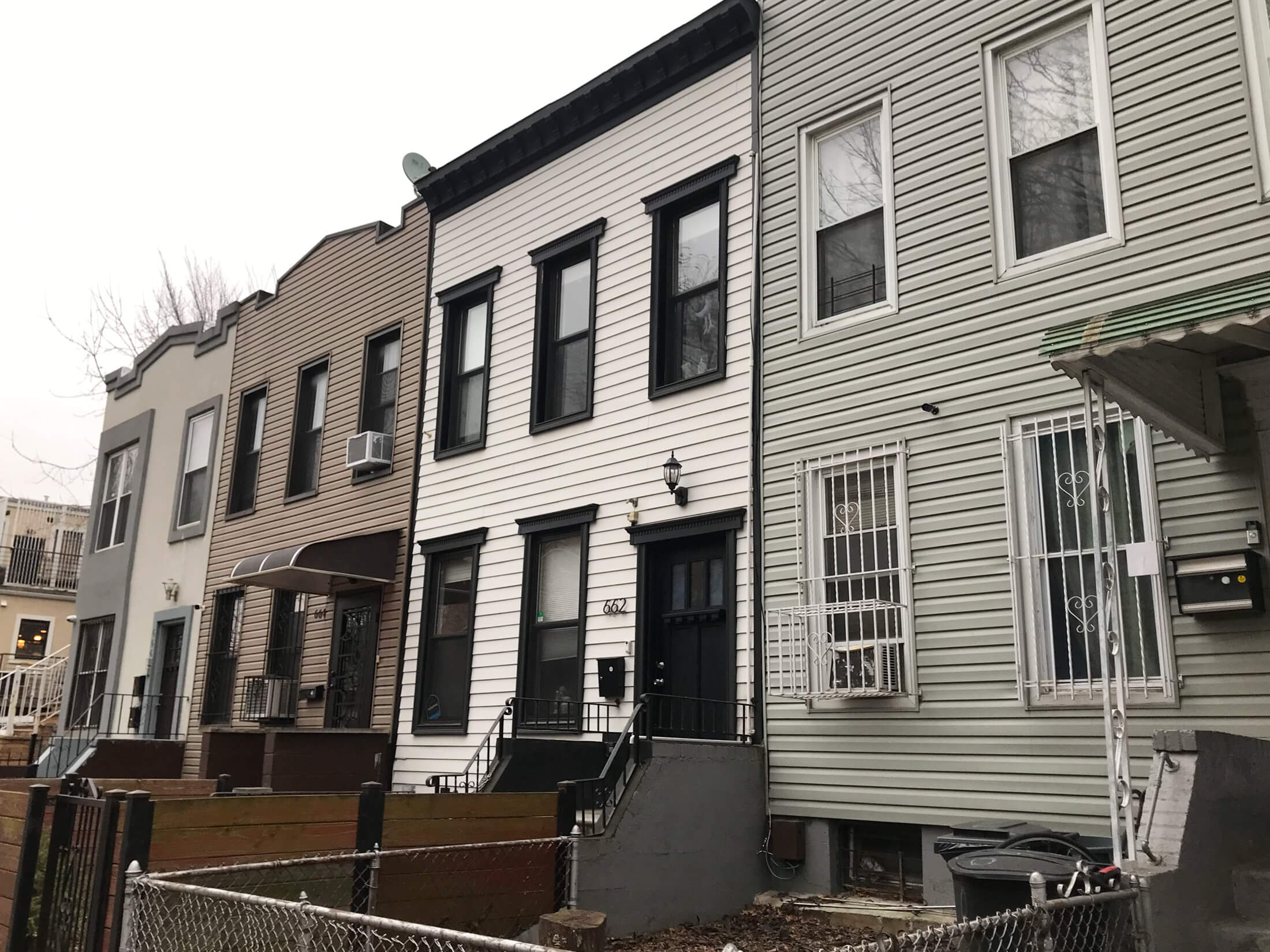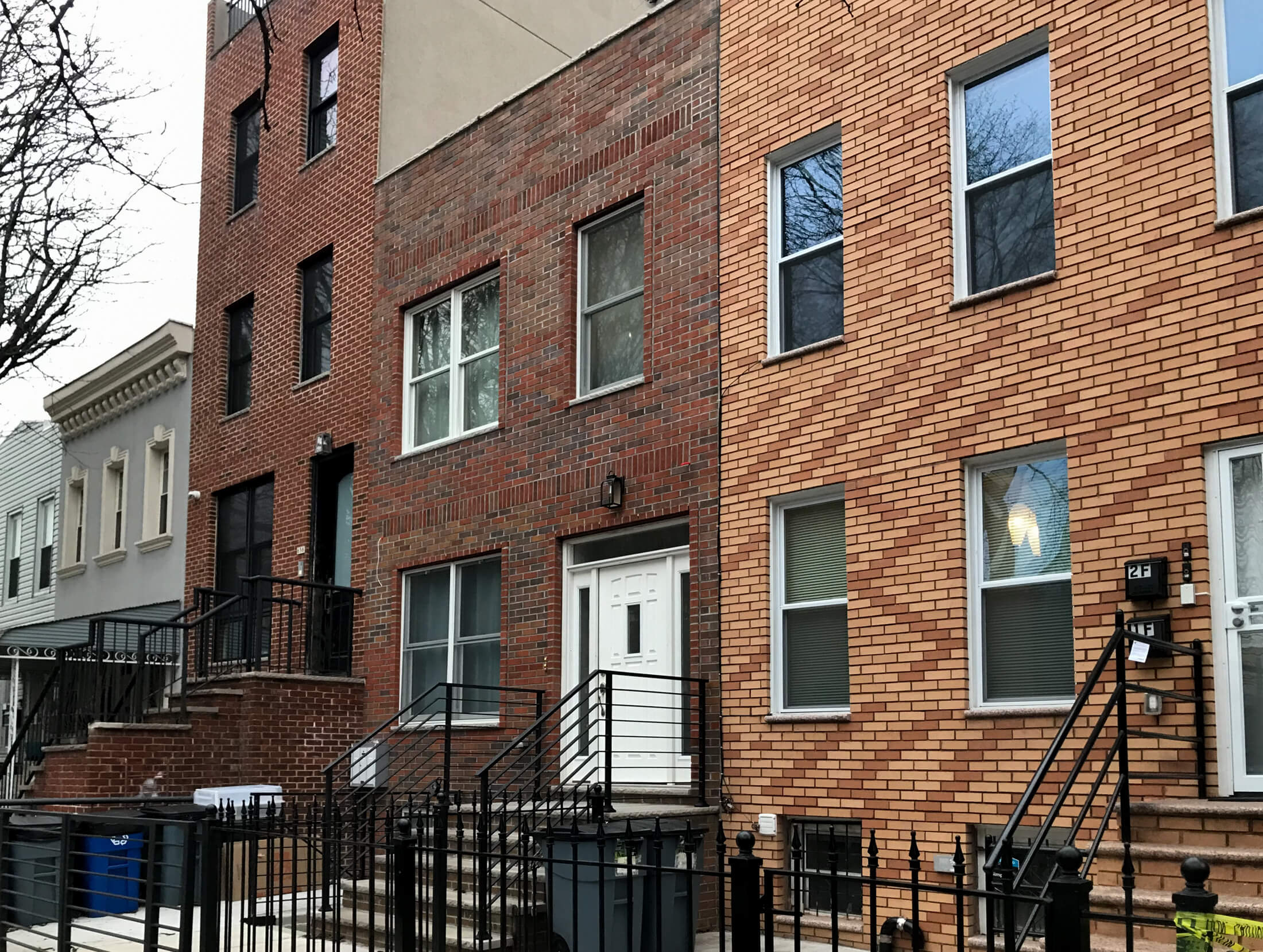Man Who Forged Power of Attorney to Steal Bushwick House Gets 10 Years in Prison
A man who forged power of attorney by pretending to be an elderly Bushwick homeowner’s nephew in order to steal her deed and sell her home has been sentenced to up to 10 years in prison.

The house on Chauncey Street Tuesday. Photo by Cate Corcoran
A man who forged power of attorney by pretending to be an elderly Bushwick homeowner’s nephew in order to steal her deed and sell her home has been sentenced to up to 10 years in prison.
Brooklyn District Attorney Eric Gonzalez said Tuesday that 48-year-old Shavard Callaway of North Babylon “callously took advantage of an elderly woman, stealing and selling her home while she was living with relatives.”
“Today’s sentence holds him accountable for this despicable crime and sends a strong message to would-be scammers and deed thieves that we will seek serious penalties for those who victimize Brooklyn homeowners,” Gonzalez said in a press release.

Callaway was convicted by a jury of grand larceny, forgery, and other charges after he stole the two-story house at 654 Chauncey Street from its 89-year-old homeowner in November 2014. The next month, he sold it to WI Management LLC, signed for by Moshe Weiss, for $250,000, city records show.
According to city records, the house had belonged to Nell Carter and had been in her family since 1968. At the time the deed was signed over to Callaway, Carter was living with relatives in upstate New York, Gonzalez said.
Carter discovered what had happened in January 2015 when prospective buyers, who were in contract to purchase the house from her for $900,000, did a title check and discovered the falsified deed.

Carter immediately filed a lawsuit against Callaway, who was indicted in November 2017, Gonzalez said. Callaway’s attorney negotiated a surrender, but Callaway failed to turn up and wasn’t arrested until he was found in Suffolk County in 2020. In the press release, Gonzalez calls Callaway a “predicate felon” and said he boasted on Facebook “that he had turned from his life of crime selling drugs to committing forgery and theft as a ‘paperwork master.'”
According to city records, the deed was returned to Carter’s estate in December 2019, as she died in 2015, and WI Management was reimbursed its $250,000 by the title company, Gonzalez said in the press release. Carter’s estate sold the property for $750,000 to First Chaunce Corp in February 2020, city records show.
First Chaunce Corp. renovated the wood-frame house, replacing its vinyl siding with brick veneer, and flipped it in July 2022, selling it to Townhouse Rental II LLC for $1.425 million, city records show. Townhouse Rental II, as the name suggests, appears to be an absentee investor: Days after the sale, the two units were advertised for rent, for more than $3,000 each.
Deed theft is an obstinate problem in Brooklyn, where thieves target elderly and Black and brown homeowners. As house prices have skyrocketed in much of central and eastern Brooklyn over the past 20 years, so too have scams that transfer homes from longtime owners, who get nothing or in some cases a fraction of their market value.
Gonzalez told BK Reader in July 2022 that his office’s Real Estate Fraud Unit “vigorously investigates deed fraud cases” but they can be “very difficult to prove.”
“Whenever there is sufficient evidence, we aggressively prosecute to ensure accountability and compensation for victims. To bring criminal charges, we must prove beyond a reasonable doubt that either a false filing took place or that the buyer made materially false representations of fact to induce the owner into selling the property,” he said.
Meanwhile, in October, the office of Attorney General Letitia James’ called on New York lawmakers to make deed theft an explicit crime in the state penal code, City Limits reported.
“No one should face the nightmare of having their home stolen from them without any warning, knowledge, or reason,” James said in press release announcing arrests in a separate deed theft case. “Deed theft is a merciless crime that targets seniors, and often people of color, who are asset rich but cash poor, and reliant on their homes as a stabilizing force for their families and loved ones.”
Related Stories
- Bed Stuy Family Watches as Possessions Thrown in Trash, Locks Changed in Alleged Deed Theft Case
- Former Tenant of Flatlands House Charged With Stealing It Via Deed Fraud
- Settlement in Deed Theft Case Means Bed Stuy Family Can Stay in Their Home
Email tips@brownstoner.com with further comments, questions or tips. Follow Brownstoner on Twitter and Instagram, and like us on Facebook.









What's Your Take? Leave a Comment